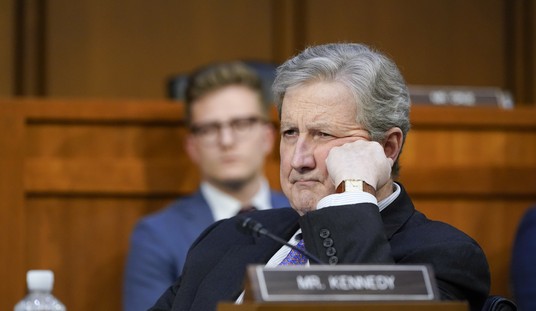Here’s another story that provides an interesting thought exercise for us. Can, and should, the government pass legislation protecting men from paternal fraud? Even before Kanye West warned us about women falsely claiming that a man she slept with is the father of her child, this was an issue. But a bill being considered in Tennessee’s state legislature might provide a viable way to solve this problem.
Tennessee state lawmakers have proposed a measure designed to prevent situations in which unmarried men are not forced to pay child support for children who are not their own biologically. This would mean that women would not be able to keep a man on the hook for paying for a child she had with another man.
Essentially, if Maury Povich were a piece of legislation, his would be it:
A bill that would prevent unmarried men from claiming a child that isn’t biologically their own is making its way through the Tennessee legislature.
House Bill 2698 passed the Children and Family Affairs Subcommittee Wednesday but not without a challenge from the Tennessee Department of Human Services.
Memphis Representative Antonio Parkinson is sponsoring the House version of the bill. He says some constituents say they’ve been forced to pay child support after finding out a child they thought was their own was not.
“He presented the magistrate with the DNA findings,” said Representative Parkinson. “The magistrate said ‘somebody gotta take care of him referring to the child and it’s going to be you’ and gaveled him out.”
House Bill 2698, would require DNA evidence proving paternity before an unmarried man signs a birth certificate for a child that may not be biologically his.
Rep. Parkinson further described how this individual eventually lost his freedom after being found in arrears of paying child support and having his driver’s license suspended. After being pulled over, he was thrown into jail.
Parkinson explained how this bill would protect both biological fathers and unmarried men who are not the fathers of their significant other’s children:
Multiple reports state that one third of the signatures on birth certificates from unmarried couples do not reflect the biological fathers name. Under House Bill 2698/Senate Bill 1777 unwed fathers could still voluntarily sign, but in order for the birth certificate to be officially validated, the signer must provide the results of a DNA test to Vital Records.
This will insure that the actual biological father is listed on the birth certificate of the child. The Tennessee Department of Human Services (DHS), who oversees the child support program, is fighting vigorously to kill the bill. Why? Because the department fears any changes in their enforcement rules could, possibly, jeopardize the $52 million in funding it receives from the Federal Government for its child support enforcement programs. In addition, DHS could also potentially receive millions more for reaching a quota of 90% acknowledged births, with yet another bonus out there for exceeding the quota.
Rep. Parkinson argued that Tennessee’s Department of Human Services program “actually aids paternity fraud by allowing unsuspecting putative fathers to blindly sign a birth certificate without DNA proof of actual biological fatherhood.”
This legislation seems like a solid way to prevent mothers from fraudulently extorting men for cash using the court system, as happened with the young man in Parkinson’s story. If a male must furnish a DNA test before getting his name on the birth certificate, it can help him make a better-informed decision on how to proceed with fatherhood – especially if his woman was not faithful. It’s better to know beforehand if your significant other has been creepin’ while you been sleepin’, right?
An argument against this law might point out that it might pose a challenge in terms of logistics when it concerns the resources used to test each child. Implementing mandatory testing for each case might not be as simple as it sounds.
But what about looking at this from a liberty perspective, specifically when it concerns the role of government? Is it the state’s role to prevent ratchet women from defrauding unsuspecting men by falsely convincing them that they are the father of their children?
Folks who favor a minarchist approach might argue that the government’s role is to protect us from threats to life, liberty, and property. Protecting property rights means not allowing bad actors to steal our stuff through force or fraud. This could justify the government taking a step to keep this from happening.
On the other hand, those who also prefer limited government might suggest that it is not the state’s responsibility to protect a man from paternity fraud. After all, are men not capable of commissioning a paternity test on their own? If a man is having doubts about his paternity, it isn’t too difficult to do this without the aid of the government. Should taxpayers have to foot the bill for this, even if it involves preventing fraud and theft?
These are all valid questions that should be considered. I lean towards having people take responsibility for these issues rather than having the state mandate that each child be tested. However, there are compelling arguments on both sides of the issue. It will be interesting to see how this turns out if the law is passed.














